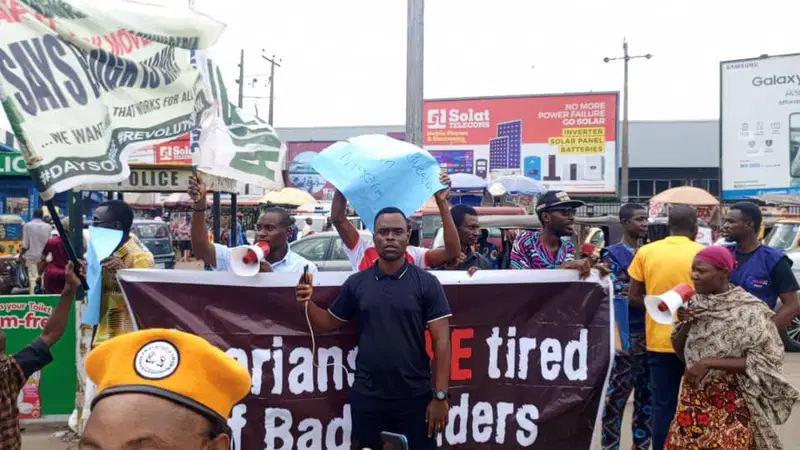Social critic and lawyer, Dele Farotimi, has lamented that the rot in the Nigerian judiciary has continued to plague major actors like judges who now allow themselves to be used by politicians and persons of means to “oppress” and “suppress” the masses.
Farotimi was a guest on Inside Sources with Laolu Akande, a socio-political programme aired on Friday.
“The judicial system has become a tool for the oppression of the weak,” he said, citing how federal and state governments used the courts to “criminalise” the August 2024 #EndBadGovernance protests against hunger and economic hardship.
“People went out to protest against hunger and governments all over the place, even the one in Lagos State, went to the court to get injunctions against people looking to protest. They used the judiciary to handcuff citizens who presumed to demand the right to peaceful protests. They used judges to issue pronouncements.
“To make the matter worse, the (Nigerian) state went ahead to charge peaceful protesters for treason, to criminalise the right to protest? And the judiciary has become complicit in the oppression and suppression of the Nigerian people,” he said.
Farotimi lamented that the judiciary no longer protects the interest of the common man but members of the elite who could afford the economic means to get a “vestige of justice”.
He said, “When what should become the last hope of the common man has become as hopeless as our judiciary has become, then, it becomes alarming and we start talking about the judiciary. Which part of our lives as Nigerians really encourages any hope?
“We must look at ourselves and tell ourselves the truth that what we have done to ourselves and our children is not sustainable. We’ve destroyed this country and if we don’t call ourselves back, it will be beyond redemption very soon.
“I’m a lawyer, I have cases in court that I know I won’t get justice on. I go there just in case people say what do you do. That’s how hopeless our judiciary has become. Only the rich can get a vestige of justice within the system. Only the rich and the powerful.
“So, if the people lose hope in the judiciary as they have, what is left? Because I have lost hope in the judiciary, that’s the honest truth.”
The social critic said the Nigerian judicial system must evolve to an impartial system that is truly blind to all based on equity.
“The Nigerian judiciary is in serious need of a turnaround,” he asserted, noting that it is not just about the human resources but urgent structural needs.
He said judicial appointments “cannot be a reward for the good old boys and girls who have served the system which is what it has essentially been reduced to”.
“When you look at the end product which is the dispensation of justice and you see that there is little or no justice available to anyone to anyone within the country, courts of different jurisdictions saying different things.
“When we are talking about judicial reforms, we must understand clearly that the judiciary is but one out of the many aspects of our country that has more or less collapsed,” he said.




